Nara residency for young African female filmmakers
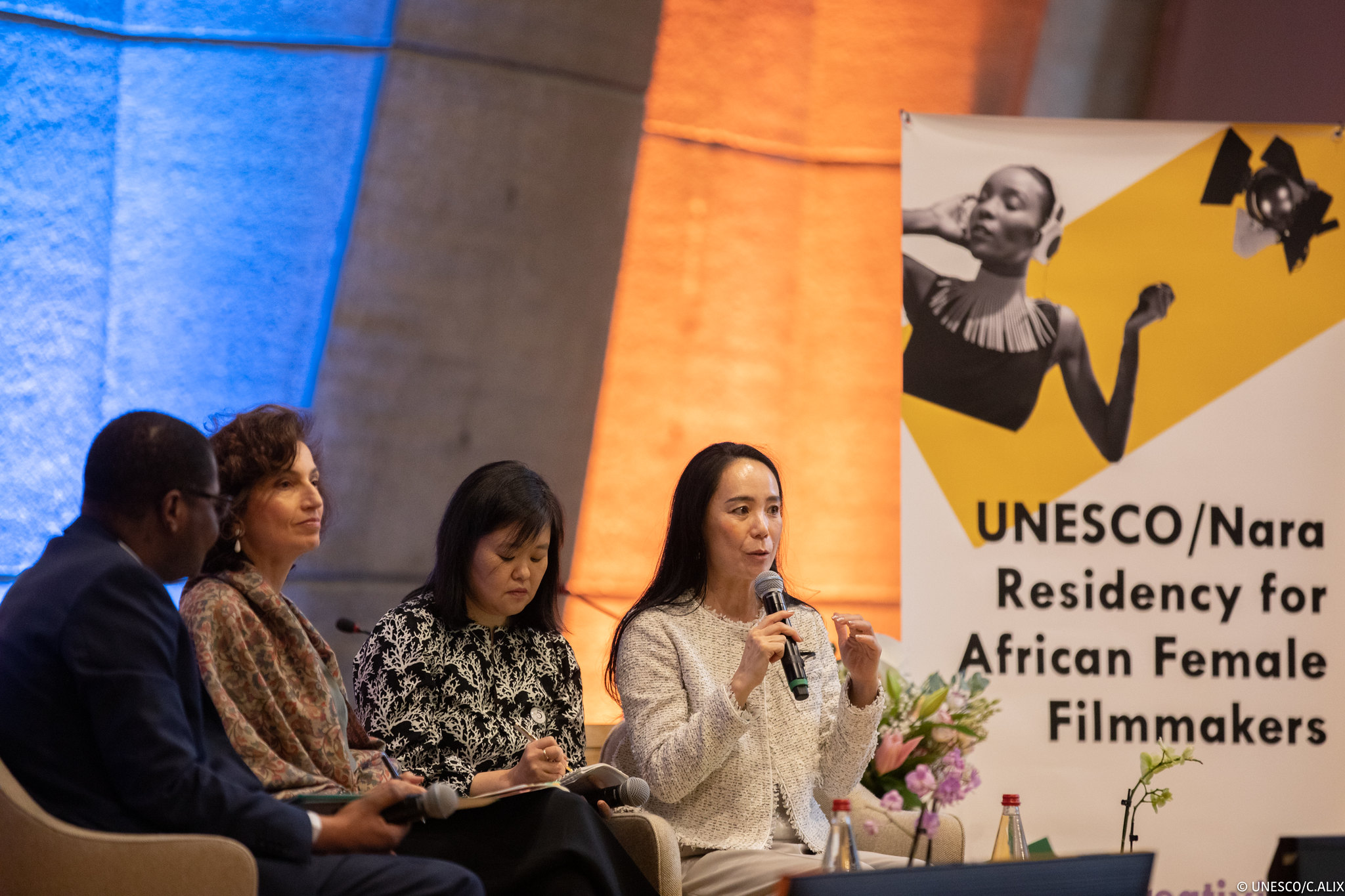
The objective of the project is to empower 10 young African women filmmakers to produce quality documentary films and to advocate for the promotion of diverse film contents. This is to be done in a spirit of cooperation with Japanese filmmakers through a filmmakers’ residency.
While the African film industry is emerging as an important source of economic growth, jobs and revenues for many people in Africa, women film professionals in Africa remain largely under-represented compared to men, especially in key creative and decision-making positions, with less access to training, exchange and mobility opportunities. Recognizing women as creators and producers of cultural goods. Valuing their achievements in all areas of cultural life, is therefore critical.
Naomi Kawase
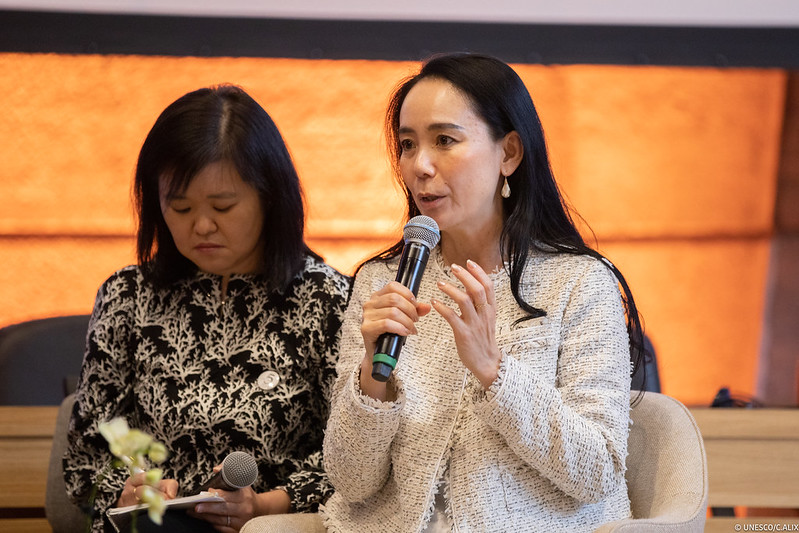
Ms Naomi Kawase, internationally acclaimed film director and founder of the Nara International Film Festival.
Grand Prix Winner for the Mourning Forest, Cannes Film Festival 2007.
"In a way, being a woman made it easier to look closely at my own environment. Not being in the mainstream or the center, she can make new discoveries. In my case, I will create things from the sources within myself. I believe that at the depth of the personal experience, there is something universal"
Read more about the laureates and watch their video diaries.
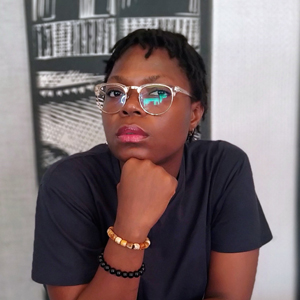
Mayowa Bakare (Nigeria) has worked as a script writer and assistant director for four years. In 2018, she worked on Chief Daddy, the third highest grossing Nollywood movie of all time.
"There are not enough stories about women told by women. I will explore a different narrative for the stories we tell of ourselves."
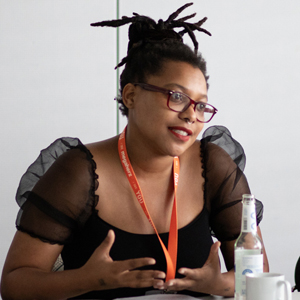
Okuhle Dyosopu (South Africa) is a documentary filmmaker and founder of Outsider, an independent production company.
"Women are the best kept secret in the film industry. I am the change I want to see."

Awa Gueye (Senegal) is a freelance film director. She has directed five films including documentaries, fictions and docu-fiction.
"Today, we attach so much importance to appearance. I want to capture a different kind of beauty - beauty in opening up to and accepting others."

Joan Kiragu (Kenya) is a documentary filmmaker. Kiragu has won multiple Best Student Film awards for her films Detox and The First Date.
"This residency offers an international platform for the voice of women. I will be an ambassador pushing forward the agenda whilst making stories that matter."
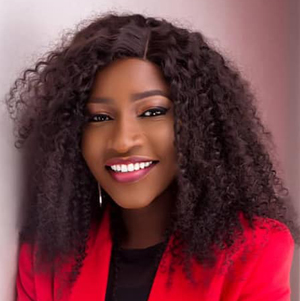
Uren Makut (Nigeria) is a film director and a producer. Her docu-drama Life as It Is won the Best Docu-drama and Best Producer at AFRICAST 2012 and was nominated for Best Documentary at Abuja Film Festival 2015.
"Women have always had a presence in filmmaking but have consistently been in the background. They are highly creative and will do amazing things when encouraged."

Lydia Matata (Kenya) is a filmmaker, writer and journalist. Her directorial debut Millet, a short film, won production funding at Shorts, Shots & Shots 2019 (Kenya).
"Filmmaking, like life, offers constant lessons. I want the confidence that what I explore through my work as a female African filmmaker is just as good and important as my counterparts elsewhere."

Fama Reyanne Sow (Senegal) is a director and a screenwriter. She has worked as an assistant director on multiple feature films including Marabout by Alassane Sy, White Color Black by Joseph Adsunloye and Sega by ldil Ibrahim.
"I want to create strong women characters so the youth in Senegal can have heroines to admire."

Delphine Yerbanga (Burkina Faso) is a director and producer at Burkina National Television. She has produced numerous short documentary films in Burkina Faso, Senegal and Niger, three of which were shown at Les Rencontres SOBATE Documentary Film Festival (Burkina Faso).
"This residency will be a creative process that can show me how to grow an idea and give birth to a tangible film."
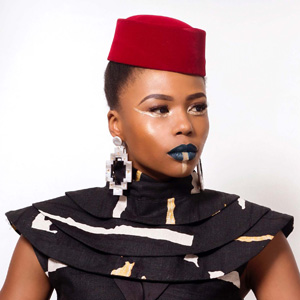
Thishiwe Ziqubu (South Africa) is a director and a founder of Ngoyama Kapital, an independent production company. She has won multiple South African Film and Television Awards for directing, scriptwriting and acting in television series and films.
"I don't want to just be a South African filmmaker, but a global artist who must expand her world view to create work that crosses boundaries."

Floriane Zoundi (Burkina Faso)is a director and a screenwriter at BFl Television. She has worked as a director of photography on short and feature films including L'assassin de ma maitresse by Emmanuel Routouamba and Boubacar Sangare.
"They say a director is like a conductor of an orchestra. I want to gain new skills, watch others work, and listen and share among my peers."
UNESCO is offering a 2-week filmmaking residency for 10 young African women filmmakers from selected countries in Africa. This film and artist-in-residence workshop will allow for the transnational exchange and sharing of artistic experiences between young African and Japanese filmmakers in a productive creative environment. It will provide artistic guidance and put in place a genuine platform for experimental creation and artistic renewal, and foster collaborations between Africa and Japanese artists, provide international exposure to the work of young women artists, and open new opportunities for artistic creation, production and dissemination.
Within the duration of workshop, the participants will complete their short films from shooting to editing. They will collaborate and interact with other participants, discuss technical and artistic issues, sharing with the group the different stages of the editing.


